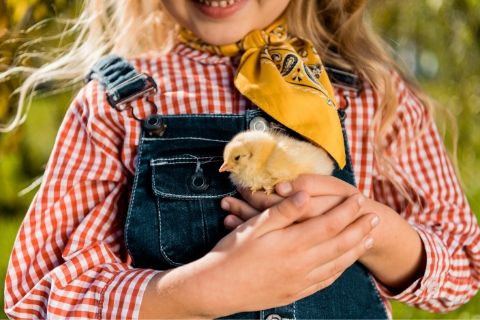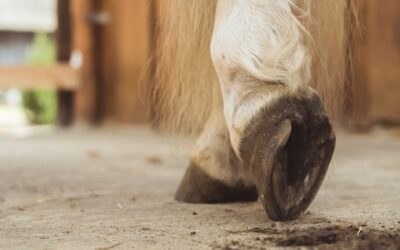
There’s no better feeling than holding an adorable baby chick in your hands for the first time. Baby chicks are precious, bringing so much light and love into the world. If you want to be around that positivity all the time, you should consider raising baby chicks at your house. This is a quick guide on how to take care of baby chicks at home. If you follow these helpful steps, you and your chicks will be very happy together.
Find a Space for Them
Baby chicks are tiny little creatures, and while they will most likely end up in a beautiful backyard coop or taking up space in your barn, they need a smaller, safer area while they grow. Whether you decide on a refrigerator box from your local appliance store or purchase a large plastic tub, make sure to put the container in a room with a steady temperature that protects them from animals that see them as lunch rather than a bundle of fluffy joy. And whatever you do, please don’t leave the box outside! There are too many unpredictable elements to think about. You’ll need a container roomy enough for all your chicks to live comfortably and will allow enough room as they grow.
Pick the Perfect Bedding
Next you will need to decide on the right chicken bedding. Lining the container with top-quality chicken bedding not only provides a cozy environment, but also mitigates the slippery surface of the box. Newborn chicks are susceptible to a disorder called “spraddle leg,” in which their legs are splayed laterally, unable to bear weight. Slippery surfaces can trigger this dangerous condition, so make sure there’s no slip in their step. Another thing to keep in mind: baby chicks peck at everything! Make sure the bedding you choose is something you wouldn’t mind them nibbling on, like Koop Clean™, an all-natural blend of dehydrated hay and straw combined with Sweet PDZ. Avoid anything dusty like pine shavings and sawdust, which causes respiratory problems, and never use cedar shavings as they are toxic.
Keep Them Warm
It’s your responsibility to keep your baby chicks warm. They will need to be artificially warmed until the weather warms and they’re fully feathered. The most common method is with a brooder heat lamp. A brooder lamp is a light you can clip over the side of the chicks’ container with the purpose of regulating the temperature in their cage. But keep a close eye on your chick friends. You may need to adjust the lamp’s height. Setting the light on one side of the container allows your new baby flock to cool off or heat up depending on where they go in their home. If you notice your chicks are staying away from the light a good portion of the time, this means they’re too warm and the light is too close. If they are all bunched underneath the lamp most of the time, you may have the light too far away, not allowing enough heat into the container. Keep an eye on them and observe their behavior to watch for any signs of distress. Your baby chicks rely on you to keep them safe and warm, so please take the responsibility seriously.
Keep Fresh Water and Food on Board
Fresh water! This is no joke. All animals need fresh water, and your baby chicks are no different. I know, I know! They will mess that water up faster than you can say “cluck.” But make sure you are changing it at least once a day and are checking it during the day to make sure they don’t need a quick clean-up.
The same goes for food. They are going to make a mess of their food because that’s what baby chickens do. Don’t get discouraged, because they will get bigger and…still make a mess of their food. Just get used to it now. As far as what to feed, talk to your local feed store and buy a trusted brand of feed that is designed for the growing chicks.
The Importance of Sanitation
It’s essential to keep everything as clean as possible when you’re taking care of baby chicks at home. As cute as they are, baby chicks can carry certain diseases, like salmonella. Thoroughly wash your hands with soap and water before and after you handle them. This will reduce the likelihood of any diseases spreading throughout your home. Be sure to wipe down every piece of equipment you use when taking care of the chicks. Again, this will decrease the chances of spreading germs that are best left in the barnyard.
As long as you are careful and provide your baby chicks with the care they need, there’s no reason they won’t love being a part of your family.




